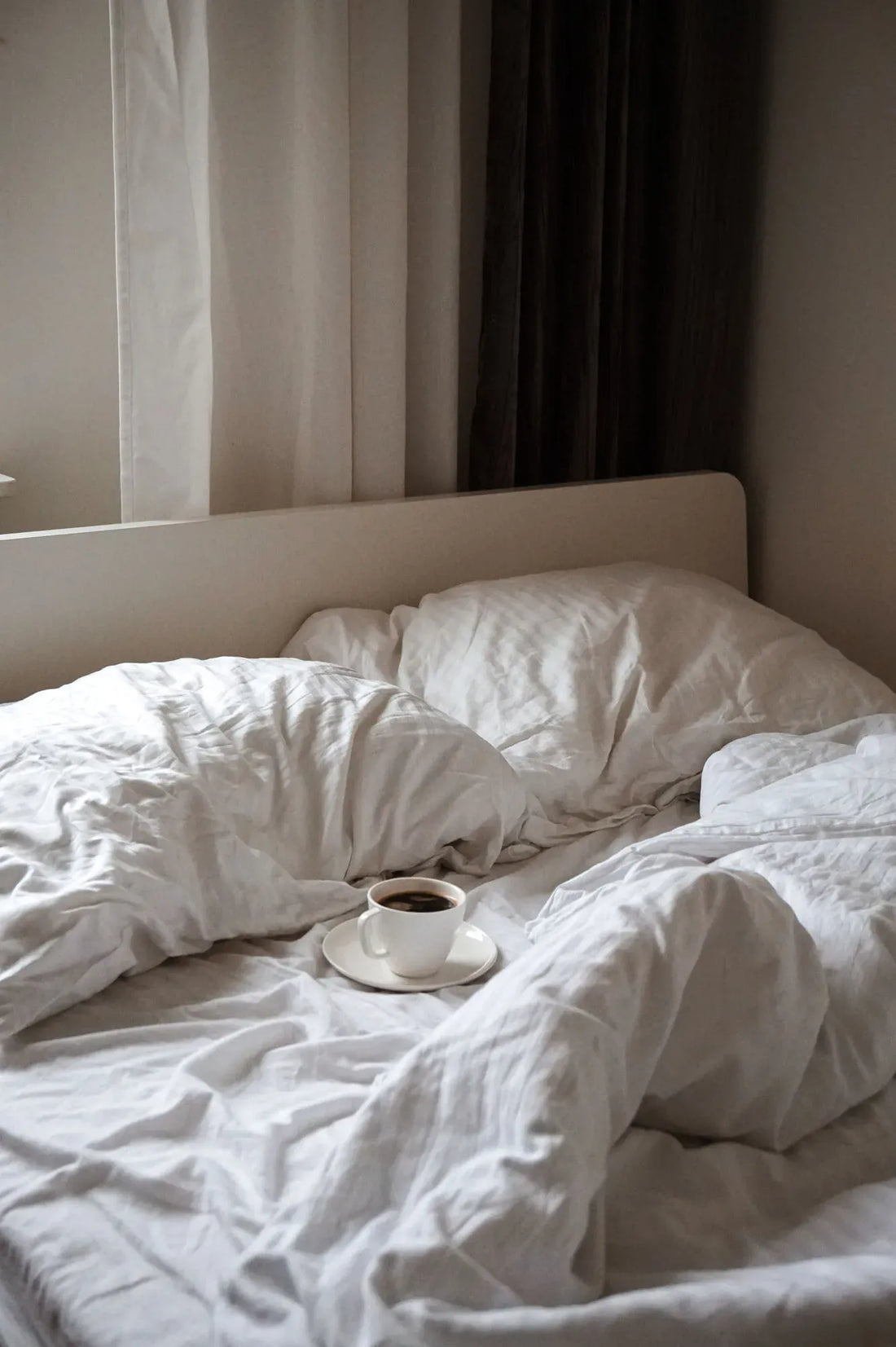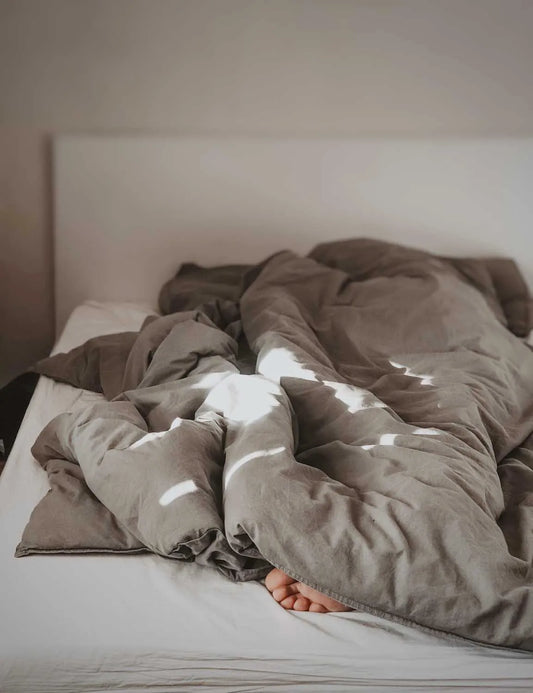Dive into the essential topic of optimizing sleep for marathon training and performance. At Remly Sleep, we're dedicated to leveraging research for product development, and The Dream Lab is our way of sharing the knowledge we gain with you.
The Importance of Sleep for Marathon Training
As you embark on your marathon training journey, one aspect that must not be overlooked is the importance of sleep. It plays a significant role in ensuring you perform at your best, both physically and mentally. In this article, we'll delve into the critical roles sleep plays in recovery, mental performance, and overall marathon success.
Sleep and Recovery
During marathon training, your body undergoes significant physical stress, and sleep is crucial for muscle repair, growth, and recovery. Adequate sleep allows your body to regenerate and adapt to the increased demands of training, promoting better performance and reducing the risk of injury. Read more about how sleep affects athletic performance and recovery.
When you sleep, your body releases growth hormones and other essential substances that aid in tissue repair and muscle growth. This process helps to minimize the effects of fatigue and inflammation caused by intense training sessions. Without sufficient sleep, your body will struggle to recover, potentially leading to overtraining, injuries, and a decline in performance.
Sleep and Mental Performance
In addition to physical recovery, sleep plays a vital role in mental performance, including focus, motivation, and decision-making. These cognitive functions are essential during marathon training and can impact your performance on race day. Discover more about the impact of sleep on mental health.
Research has shown that sleep deprivation can lead to reduced concentration, slower reaction times, and impaired decision-making abilities. All of these factors can negatively affect your ability to stick to your training plan, maintain proper form, and stay motivated throughout the grueling marathon preparation process.
Tips for Optimizing Sleep During Marathon Training
Now that we understand the importance of sleep for marathon training, let's discuss some practical tips to help you optimize your sleep and ensure you're fully rested and ready to tackle your training regimen.
Establish a Consistent Sleep Schedule
A consistent sleep schedule helps regulate your body's internal clock, making it easier to fall asleep and wake up at the same time each day. Aim for 7-9 hours of sleep per night, and try to maintain this schedule even on weekends and rest days. Learn more about the importance of circadian rhythm.
Consistency is key in marathon training, and this includes your sleep schedule. Going to bed and waking up at the same time each day helps train your body's circadian rhythm, making it easier for you to fall asleep and wake up feeling refreshed. A regular sleep schedule also ensures you're getting the right amount of rest to support your training efforts.
Prioritize Sleep During High-Intensity Training Periods
During periods of increased training volume or intensity, your body may require additional sleep for optimal recovery. Listen to your body and adjust your sleep schedule as needed, allowing for extra rest when necessary.
As you ramp up your training, you might find that your body needs more sleep than usual. This is entirely normal, as your body works harder to repair and recover during high-intensity training periods. By prioritizing sleep during these times, you can help ensure your body gets the extra rest it needs to maintain peak performance and avoid burnout.
Optimize Your Sleep Environment
Create a sleep-friendly environment that is cool, dark, and quiet. Consider investing in blackout curtains, a comfortable mattress, and pillows that suit your preferred sleep position. You might also want to try the Remly Sleep Mask to block out any remaining light, ensuring an even more restful sleep. Additionally, keep your bedroom clutter-free to minimize distractions and promote relaxation. Check our blog for more tips on creating a dreamy bedroom.
A comfortable and serene sleep environment is essential for quality rest. Ensure your bedroom is free from distractions, such as bright lights, loud noises, and electronic devices. Maintaining a cool temperature (around 60-67°F/ 15.6 to 19.4 degrees Celsius) and investing in high-quality bedding can significantly enhance your sleep experience, helping you wake up feeling refreshed and ready for your next training session.
Limit Exposure to Screens Before Bedtime
Exposure to blue light from electronic devices can suppress melatonin production, making it more challenging to fall asleep. Limit screen time at least an hour before bedtime and consider using blue light filtering apps or glasses, like Remly 70% Blue Light Blockers, to help protect your eyes and promote better sleep.
Many people are unaware of the impact screens can have on their sleep quality. The blue light emitted by smartphones, tablets, and other devices can interfere with your body's natural sleep-wake cycle, making it harder to fall asleep and stay asleep throughout the night. By limiting your screen time before bed and using blue light filtering tools, you can create a more sleep-friendly routine that supports your marathon training goals.
Incorporate Relaxation Techniques
Incorporate relaxation techniques such as deep breathing, meditation, or gentle stretching into your bedtime routine. These practices can help calm the mind, reduce stress, and prepare the body for restorative sleep.
Training for a marathon can be mentally and physically exhausting, which is why it's essential to find ways to unwind and relax before bedtime. Incorporating relaxation techniques like deep breathing exercises, meditation, or gentle yoga can help ease your mind and body, allowing you to drift off to sleep more easily. Experiment with different methods to find the ones that work best for you and make them a regular part of your nighttime routine.
Focus on Nutrition
Proper nutrition is essential during marathon training, and it can also impact sleep quality. Avoid large meals and stimulants such as caffeine and alcohol close to bedtime, as they can interfere with sleep. Opt for sleep-promoting foods that contain tryptophan, magnesium, and melatonin, such as almonds, bananas, and tart cherries.
What you eat and drink can play a significant role in how well you sleep, especially during marathon training. Consuming large meals or stimulants like caffeine and alcohol too close to bedtime can disrupt your sleep, making it difficult to get the rest you need. Instead, choose sleep-promoting foods that are rich in tryptophan, magnesium, and melatonin. Some examples include almonds, bananas, tart cherries, and turkey. Including these foods in your diet can help improve your sleep quality and ensure you're adequately fueled for your training sessions.
Track Your Sleep and Adjust Accordingly
Monitoring your sleep can provide valuable insights into your sleep patterns and help you make necessary adjustments to improve sleep quality. Consider using a sleep tracking device or smartphone app to monitor your sleep and identify areas for improvement.
As you progress through your marathon training, it's essential to keep track of your sleep patterns and make adjustments as needed. Sleep tracking devices and apps can help you identify trends, such as restless sleep or difficulty falling asleep, which may indicate a need for changes to your routine or sleep environment. By regularly monitoring your sleep, you can ensure you're getting the optimal rest to support your training efforts and overall well-being.
Concluding Thoughts
As a marathon runner in training, you must prioritize sleep to support both your physical and mental performance. By following the tips outlined in this article, you can create an optimal sleep environment, establish a consistent sleep schedule, and incorporate relaxation techniques and proper nutrition to enhance your sleep quality. Remember to monitor your sleep and make adjustments as needed to ensure you're fully rested and ready to tackle your marathon training journey.
Thank you for exploring with us at The Dream Lab. Remly Sleep is on a mission to make you sleep better by sharing the latest sleep research and incorporating this knowledge into our innovative products. We're excited to journey together and discover more insights on sleep and well-being.




